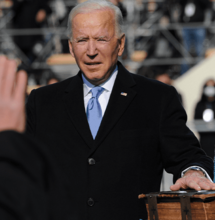Mexico City Legislators Move To Relax Marijuana Laws

If approved, changes to laws on possession, sale could pave way for regulated dispensaries
If approved, changes to laws on possession, sale could pave way for regulated dispensaries
| [Credit: Flickr/Creative Commons] |
SOURCE: The Guardian
AUTHOR: Jo Tuckman
Deep in the heart of the Tepito - the traditional home of Mexico City's black market - Juan's two mobile phones buzz constantly as he gets closes his deal. He takes the calls with precise and efficient directions, but a certain twitchiness breaks through his clean cut and calm exterior.
"Sure, you make money in this business," says the marijuana dealer who started out a year ago selling grams on street corners but is now buying kilos direct from suppliers. "But it is a very stressful job."
That job might be heading for a big transformation after leftwing legislators tabled measures to relax regulations on marijuana possession and sale in the capital, as well as proposals for federal reforms that could increase permitted quantities and encourage other states to follow suit.
The initiatives, proposed by the leftwing Party of the Democratic Revolution - which governs in the capital and represents the third force in the federal congress - are the latest example of a region-wide rethink of the prohibition approach to the war on drugs. In December, Uruguay's parliament approved a bill to legalise and regulate the sale and production of marijuana, while in the US Washington and Colorado states recently legalised the sale of cannabis under licence.
While comparatively cautious on paper, the Mexican version brings the debate to a country battered by extreme violence unleashed by the government's attempts to take the war to the drug cartels.
"Seventy thousand dead, 26,000 disappeared, and an incalculable number of internally displaced are more than sufficient reason to look for an alternative model," federal congressman Fernando Belaunzarán told reporters this week.
Current federal legislation allows people to carry up to 5g of marijuana (about four joints) without legal consequences. In practice those caught with even these amounts are only released after being booked by police, which carries with it a serious risk of criminalisation and extortion by corrupt officers.
If approved, the new rules in the capital would drastically reduce the police's role and, most significantly, pave the way for regulated and supervised marijuana dispensaries. The capital's reputation for being relatively progressive, having already legalised abortion and gay marriage, suggests the local legislation has a good chance of getting on the books. The initiative before the federal congress proposes raising the limit to 30g, opens the possibility for defining marijuana as medicinal, and gives states more freedom on how to apply these rules.
"These are concrete, well defined, moderate and plausible proposals to start the kind of serious discussion that has been absent during all these years of war mongering," says Alejandro Madrazo, an academic who helped draw up the initiatives. "If we are able to move consumers into tolerated spaces then we can expect to start draining the black market."
He plays down claims others make about the bills' potential to curb violence by stressing that the capital has been relatively free of the kind of horrors common elsewhere. Even so, the local drug market has been blamed for some horrific crimes, including the abduction of 13 young people in May last year from an after-hours bar in one of the main business districts, a few blocks from police headquarters. The authorities say the abduction was carried out in revenge for the murder of a local dealer.
"I think making marijuana legal is a good idea," says tourism student Rodrigo Martínez, who adds he would prefer to buy the marijuana he smokes at parties from a regulated dealer rather than on the streets of his own crime-filled neighbourhood in the far south. "Sometimes you feel pretty vulnerable when you buy, and if you get caught by the police you have to pay a bribe."
With the debate still in its early stages, a poll of Mexico City residents published in the newspaper El Universal suggests such support is rare. Only 16% approved of raising the amount of permitted possession to 30g, though more than half liked the idea of regulated dispensaries.
The capital's archdiocese has voiced the most vehement opposition to the initiatives so far with an editorial titled "Stoned City" in its weekly publication From the Faith. "Drugs should not be combatted with drugs," the text stated. "They are promoting an addicted and sick society."
Back in Tepito, Juan runs through the range of products he buys - from hydroponic marijuana from the northern state of Sinaloa at about 1,000 pounds a kilo to rough and ready weed from the southern mountains at less than 50 pounds. He sells them all, he says, at a considerable profit.
"I would like a permit, but I don't think I would qualify," he muses, before his phone buzzes again and he rushes off the clinch the deal.
guardian.co.uk © Guardian News and Media 2014



